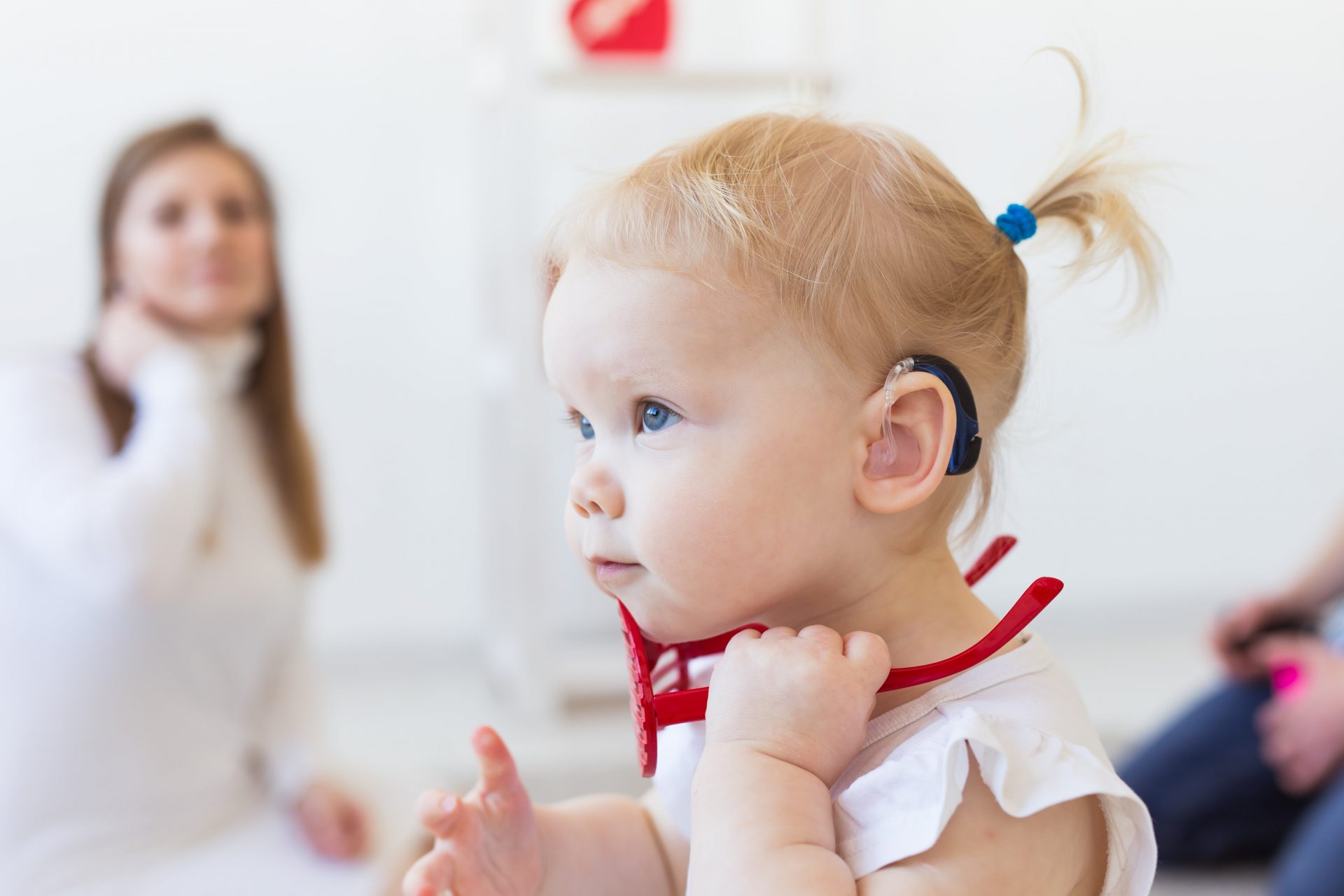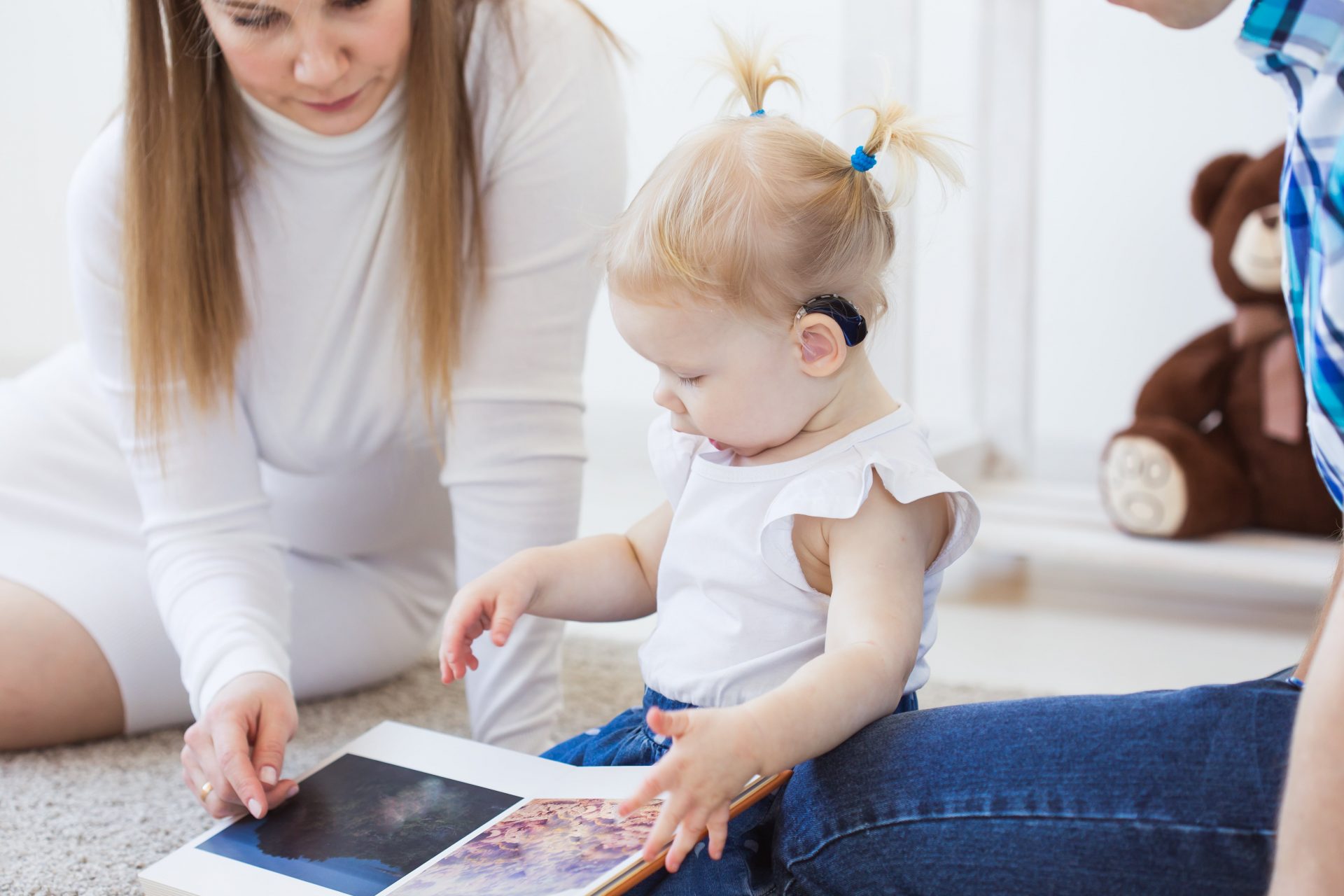Newly Diagnosed
In the UK, half of deaf children are born deaf and the other half develop deafness during childhood
A newborn hearing screening service is provided in Jersey for all newborn babies. This means within the first few weeks of life, your baby’s hearing will be tested. The most important thing to note is that these tests are completely painless.
Between 2002, when this service started, and 2020, 16 children have been identified with a permanent childhood hearing impairment.
Late identification of deafness can cause a delay in a child’s development of communication and language skillsThe earlier a baby is identified with hearing loss, the better.
The screening is completed through two quick and simple tests that can be carried out in hospital, at home, or in a community clinic by specially trained hearing screeners or health visitors. Initially, a test called the Otoacoustic Emissions (OAE) test is done and if your baby fails, it may either be repeated or an Automated Auditory Brainstem Response (AABR) test carried out.
Some reasons your baby might fail the first test, but not have permanent hearing loss are:
- background noise during the test;
- your baby was unsettled; or
- your baby has fluid or a temporary blockage in their ear.
All babies who have been in a Special Care Baby Unit (SCBU) for 48 hours or longer, or where there is a known risk of them having a hearing loss, will have both tests done.
Depending on the results, further tests may be needed. These include:
- Otoacoustic Emissions (OAE) test;
- Automated Auditory Brainstem Response (AABR) test;
- Diagnostic assessment of hearing; and
- Tympanometry
- As your baby gets older, their hearing tests will be repeated to get a clearer picture of their hearing loss.
Most deaf children are born to hearing parents who have no previous experience of deafness. So, for some families, when they’re told their baby has hearing loss, the news can come as a great shock.
When you find out your child has hearing loss
- you may feel sad, worried, angry, or relieved that you have a diagnosis;
- you may feel overwhelmed at some of the choices you’re being asked to make so early on in your child’s life;
- you might be thinking about what being deaf will mean for your child, you, and your family as they grow up;
- you might have lots of questions:
- how will they communicate?
- should we learn to sign?
- should they go to a mainstream school?
There are a number of possible causes:
- Genetic – deafness can be inherited, even though there appears to be no family history of deafness. Around half the deaf children born in the UK are deaf due to an inherited gene.
- Complications during pregnancy – a number of infections can cause a child to be born deaf.
- Premature birth – babies born prematurely can have an increased risk of being or becoming deaf. They may also be more prone to infections and given medicines, known as ototoxic drugs, which can damage a baby’s hearing.
- Infection – illnesses during early childhood can also cause deafness.

For the other 50–60% of cases, it’s not possible to find out why a child is deaf. If it’s not possible to find out the cause, it may still be helpful for you to know what didn’t cause it.
The shock or surprise at finding out your baby has hearing loss can mean that, at first, you may find it difficult to accept the news. This is very normal. You will work through it in your own way.

The ways that your child will cope with their deafness will vary greatly, but it’s likely that they will take it all in their stride.
If your child has had a hearing loss for a while but it’s only just been diagnosed, they might have been showing these behaviours for a long time.
Other children in the family may also become unsettled if your child is getting a lot of your time and attention so, make sure you sit down with them too to explore what they are feeling.